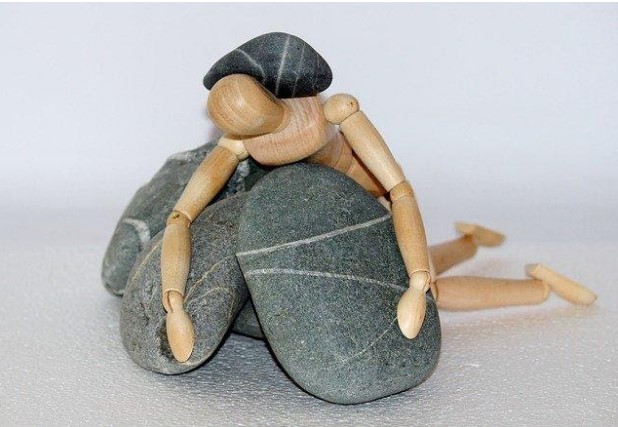In spite of the fact that the industrial landscape has undergone drastic changes in the past couple of years, individuals continue to suffer illnesses as a result of direct or indirect exposure to hazardous substances. In such circumstances, even if employment had ended years ago, it’s possible to make a claim for compensation, even if the employer has gone out of business. The reason for this is that employers have a legal responsibility to protect the health and safety of employees. Therefore, they should take appropriate measures to make sure people are out of harm’s way.
Some causes of disease have changed with time, while others have remained virtually the same. Even if great progress was made in industry and technology, living and working conditions haven’t changed very much. Little attention is paid to health and safety in the United Kingdom, although the importance of occupational health has been recognized for more than a decade. If you’ve developed a work-related illness as a result of your employer’s negligence, you should bring legal action against the company. If you’d like to find out more about the claim’s process, please continue reading.
What is considered an industrial disease?
An industrial disease is basically a condition that has been caused by exposure to dangerous substances or unsafe working conditions. For instance, you may become ill if you have spent time in a dusty environment or with building materials containing asbestos. Industrial Injuries Disablement Benefit is offered to individuals who are ill or disabled because of a work accident, such as:
- Asthma
- Deafness
- Pneumoconiosis
- Chronic obstructive pulmonary disease
- Osteoarthritis
- Dupuytren’s contracture
Some of the most common industrial diseases for which you may be able to make a claim include:
- Repetitive strain injury
- Vibration white finger
- Dermatitis
- Occupational cancer
- Cataract
Attention needs to be paid to the fact that these are just examples. If you don’t see your condition on this list, don’t fret. Reach out to a legal adviser and discuss your situation. The Internet can be a great place for high-quality free advice, if you know where to look. If you need a professional ear, you can count on the experts at UKLaw.co.uk.
Are you entitled to compensation if you have COVID-19?
The government has yet to recognize COVID-19 as an industrial disease. More data is necessary to demonstrate that large numbers of individuals have contracted the disease at work. The recognition of COVID-19 as an occupational disease would entail financial compensation for those exposed to the virus during working hours. Vaccines attenuate the burden of COVID-19 on the workforce, but the effectiveness of this outcome remains uncertain for the time being. The fact is that the current pandemic needs to be better controlled.
How to start a compensation claim for an industrial disease
If you have your mind set on bringing legal knowledge, do it within the first three years that you realized or suspected that your illness was related to your environment. It’s a reasonable time frame. You’re able to make a claim for compensation even decades after the incident, but it’s hard, if not impossible to prove that your symptoms are work-related. The point is that you shouldn’t waste any time.
Make a statement for your claim
Your lawyer will take a statement from you. Therefore, you must provide complete details of the incident, including your diagnosis, symptoms, and anything that might be affecting your personal life. The statement is the time during which you speak to the legal professional and describe the situation. If you have a hard time remembering all the details, write everything down. Mention who you worked with and what projects were your responsibility. Write down any fact that comes to mind. It might turn out to be helpful in the court of law.
Notify those responsible of your industrial disease
Next, send a letter of claim to the company that is responsible for your disease. Formally notify your employer that court proceedings may be brought against them. Generally speaking, companies have insurance called employer’s liability insurance, a policy that handles claims from employees who have sustained a work-related illness or injury that isn’t covered by workers’ compensation. The letter of claim will be sent to the insurer. If the company has gone out of business, you have to trace down the insurance company.
Gather medical evidence
To make a claim, a lawyer needs proof of what happened. Medical evidence can be deployed to prove the guilt of the accused. Find a way to access your medical records and go over them attentively. It’s recommended to be examined by a legally qualified medical practitioner, who can assist with the claim. Depending on your illness, it might be necessary to visit one or more doctors. Keep records of the financial expenses resulting from the condition and write down your symptoms in a diary. This information will be used to build your case.
Register your claim with the court
Going to court should be the last resort. So, if you’ve used up all your options, take your employer to court, but keep in mind that the process is expensive and quite stressful. Some claims are dealt with in the High Court, but claims are usually issued by the County Court. Fill in the specific form, which can be downloaded from the official government website. In terms of compensation, you can demand general and special damages. Needless to say, the amount of compensation you can receive depends on the severity of the case.
Last but not least, you and the defendant should take reasonable steps to end the dispute. An agreement can be reached outside of court. Settlement is faster and less expensive. The vast majority of personal injury cases settle out of court. If the claim has been registered, there’s nothing more you can do. More exactly, there’s no going back. It can take years to see a result. Set your claim with the help of a lawyer rather than taking matters to court. It’s just a thought.














